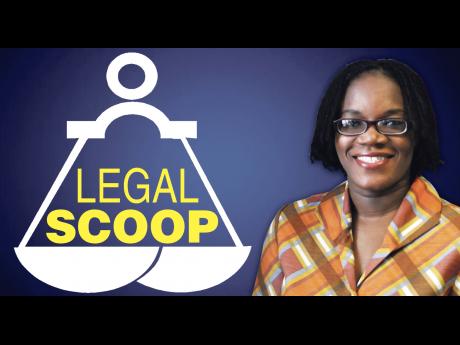14 things to know about election petitions
Two magisterial recounts have now ended without the reversal of the initial count as expected by the Jamaica Labour Party. Other than accepting the outcomes, the other step left for the defeated candidates, Dr Lloyd Dunn (St Mary South East) and Homer Davis (St James Southern) would be to apply for an election petition.
While Davis has indicated that he will not be going that route, it appears that Dunn, who lost by five votes to the People's National Party's Dr Winston Green, will be walking that road.
Today, I will aim to simplify the process that would have to be followed by Dunn to unseat the victorious candidates as per the Election Petitions Act (the act):
1. An election petition must generally be made within 21 days of the date on which the Electoral Office of Jamaica declared the outcome of the magisterial recount (Section 4).
2. The petition must state the grounds on which the petitioner relies for challenging the election or return, and conclude with the relief being sought (Section 8).
3. The petition must be made to the Supreme Court (Section 3).
4. Security for costs of $5,000 would also have to be paid either at the time of presentation of the petition or within three days afterwards (Section 4(d)).
5. The petition, in the case at hand, could be brought by any of the following:
(a) The clerk of the House of Representatives on a resolution of the House
(b) The attorney general
(c) Any other person (Section 3)
6. The petition would also have to be gazetted and served on the respondent (Green) within 10 days of being presented to the Supreme Court (Sections 5-6).
7. Upon being served with the petition, the respondent may apply to the court for better particulars of the grounds filed by the petitioner, and, indeed, the petitioner can also apply to amend or amplify his own grounds (Section 8).
8. Additionally, where the petition complains of an undue return and claims the seat for someone else - as would presumably be the case with any petition filed by Dunn - then the other side may file a cross complaint within 10 days of being served with the petition (Section 11).
9. If a petition is filed by Dunn, and Green gave the appropriate notice that he did not intend to oppose the petition - a fate less likely than hell freezing over - then Green, albeit being the victorious candidate, would not be able to sit or vote in the House of Representatives until the speaker or deputy speaker of the House had been informed of the ruling of the court (Section 16).
10. The trial itself, in so far, as reasonably practicable in the interests of justice, would have to commence within 90 days of the petition being filed and continue from day to day, on every lawful day (that is, excluding Sundays) until its conclusions. Since the petition does not have to be filed until 21 days after the return of the successful candidate and since the date for the starting of the trial could be up to 90 days after filing of the petition, then the start of the trial of any election petition whether filed already or not could be several months away (Section 19A).
11. The chief justice is the person authorised under the act to hear election petitions, but she may delegate this job to another Supreme Court judge.
12. The election petition is heard in open court without a jury, and as such, members of the public are entitled to attend and observe (Section 20C).
13. At the conclusion of the trial, the judge will determine which candidate was duly returned or elected or whether the election was void, and so advise the Speaker of the House (Section 20f).
14. Thereafter, the matter is not necessarily at an end, as a right of appeal under section 20 of the Court of Appeal Act would then lie to that court, however, thankfully, the determination of that body would be final and no right of appeal to the Privy Council would lie thereafter.
- Shena Stubbs is an attorney at law and legal commentator. Send feedback to: Email: shena.stubbs@gleanerjm.com Twitter:@shenastubbs


